
Aalto University, Espoo, Finland
| 12:30 (EEST) | AI and Autonomy for Smart Services Gurdip Singh (National Science Foundation), Ness Shroff (Ohio State University), Yiran Chen (Duke University), Franco Zambonelli (University of Modena and Reggio Emilia) |
| 17:30 (EEST) | Blockchain, NFT, and Cryptocurrencies Anusha Avyukt (University of Southern California), Tram Vo (MOBI: Mobility Open Blockchain Initiative), Aljosja Beije (Blocklab), Hugo Embrechts (Sony R&D Center Europe Brussels), Raghu Bala (NetObjex Inc) |
| 16:00 (EEST) | Smart Hospital at Home Mohan Kumar (Rochester Institute of Technology), Franca Delmastro (National Research Council of Italy), Pushpendra Singh (Indraprastha Institute of Information Technology - Delhi), Nalini Venkatasubramanian (University of California at Irvine), Linwei Wang (Rochester Institute of Technology) |
Date: Monday June 20, 2022
Time: 12:30 pm - 1:30pm EEST (5:30 am - 6:30am EDT)
The future of smart service systems is changing with the proliferation of a multitude of autonomous systems and services such as autonomous driving, precision agriculture, food and nutrition services, smart home and remote healthcare to name a few. To fully realize the fullest extent of these smart services and systems, a conglomeration of techniques such as AI and ML with resilient communications and control, reliability, and autonomy is of utmost importance. This panel will discuss recent advances and future research directions in AI and autonomy for autonomous systems and services.
Moderator
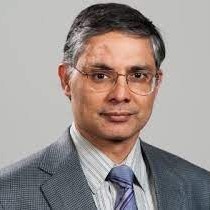 Gurdip Singh
Division Director, Computer and Network Systems (CNS)
CISE Directorate
National Science Foundation
Gurdip Singh
Division Director, Computer and Network Systems (CNS)
CISE Directorate
National Science Foundation
|
Gurdip Singh is the Division Director for Computer and Network Systems in the CISE Directorate at National Science Foundation. He is currently on leave from Syracuse University where he was the Associate Dean for Research and Graduate Programs of the College of Engineering and Computer Science. He previously served as Program Director in the Division of Computer and Network Systems in the CISE Directorate at NSF from July 2014 to August 2016. From 2009 and 2014, he was the Head of Computer Science Department at Kansas State University, and Graduate Program Director from 2006 to 2009. Dr. Singh earned his MS and PhD degrees in Computer Science from SUNY, Stony Brook in 1989 and 1991 respectively, and his B. Tech degree in Computer Science and Engineering from IIT Delhi in 1986. His research and teaching interests include real-time embedded systems, sensor networks, network protocols and distributed computing. |
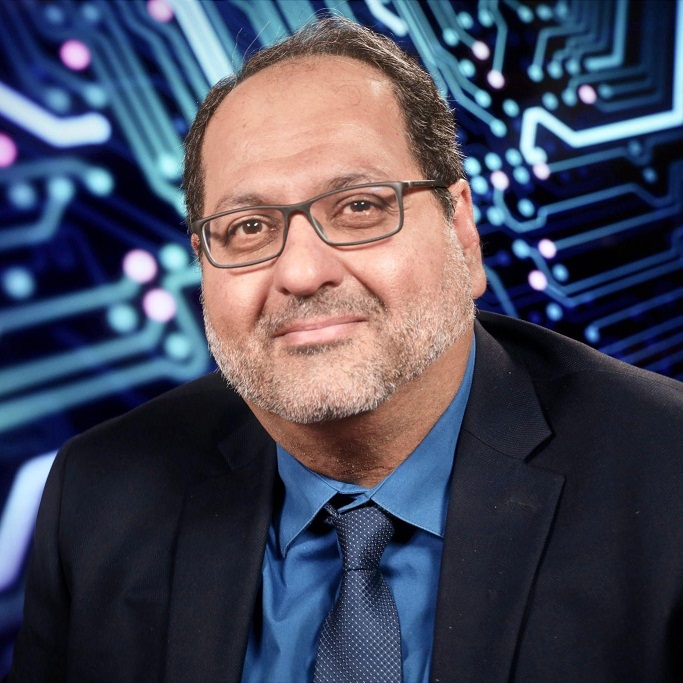 Ness Shroff
Ohio Eminent Scholar in Networking and Communications
Chaired Professor of ECE and CSE
Ohio State University
Ness Shroff
Ohio Eminent Scholar in Networking and Communications
Chaired Professor of ECE and CSE
Ohio State University
|
Ness Shroff received the Ph.D. degree in electrical engineering from Columbia University in 1994. He joined Purdue University immediately thereafter as an Assistant Professor with the School of Electrical and Computer Engineering. At Purdue, he became a Full Professor of ECE and the director of a university-wide center on wireless systems and applications in 2004. In 2007, he joined The Ohio State University, where he holds the Ohio Eminent Scholar Endowed Chair in networking and communications, in the departments of ECE and CSE. He currently serves as the Institute Director of the NSF AI Institute for Future Edge Networks and Distributed Intelligence (AI-EDGE. He holds or has held visiting (chaired) professor positions at Tsinghua University, Beijing, China, Shanghai Jiaotong University, Shanghai, China, and IIT Bombay, Mumbai, India. He has received numerous best paper awards for his research and is listed in Thomson Reuters’ on The World’s Most Influential Scientific Minds,and has been noted as a Highly Cited Researcher by Thomson Reuters in 2014 and 2015. He currently serves as the steering committee chair for ACM Mobihoc and Editor in Chief of the IEEE/ACM Transactions on Networking. He received the IEEE INFOCOM Achievement Award for seminal contributions to scheduling and resource allocation in wireless networks. |
 Yiran Chen
Department of Electrical and Computer Engineering
Department of Computer Science
Duke University
Yiran Chen
Department of Electrical and Computer Engineering
Department of Computer Science
Duke University
|
Yiran Chen received B.S (1998) and M.S. (2001) from Tsinghua University and Ph.D. (2005) from Purdue University. After five years in industry, he joined University of Pittsburgh in 2010 as Assistant Professor and then was promoted to Associate Professor with tenure in 2014, holding Bicentennial Alumni Faculty Fellow. He is now the Professor of the Department of Electrical and Computer Engineering at Duke University and serving as the director of the NSF AI Institute for Edge Computing Leveraging the Next-generation Networks (Athena), the NSF Industry–University Cooperative Research Center (IUCRC) for Alternative Sustainable and Intelligent Computing (ASIC), and the co-director of Duke Center for Computational Evolutionary Intelligence (DCEI). His group focuses on the research of new memory and storage systems, machine learning and neuromorphic computing, and mobile computing systems. Dr. Chen has published 1 book and about 500 technical publications and has been granted 96 US patents. He has served as the associate editor of more than a dozen international academic periodicals and served on the technical and organization committees of more than 60 international conferences. He is now serving as the Editor-in-Chief of the IEEE Circuits and Systems Magazine. He received eight best paper awards, one best poster award, and fourteen best paper nominations from reputable international conferences and workshops such as MICRO, KDD, DATE, SEC, etc. He received numerous awards for his technical contributions and professional services such as IEEE Computer Society Edward J. McCluskey Technical Achievement Award, ACM SIGDA Service Award, etc. He is a Fellow of the ACM and IEEE and now serves as the chair of ACM SIGDA. |
 Franco Zambonelli
Department of Computer Science
University of Modena and Reggio Emilia
Franco Zambonelli
Department of Computer Science
University of Modena and Reggio Emilia
|
Franco Zambonelli is full professor of Computer Science at the University of Modena and Reggio Emilia. He got his PhD in Computer Science and Engineering from the University of Bologna in 1997. His research interests include: pervasive computing, multi-agent systems, self-adaptive and self-organizing systems, with applications to healthcare and smart cities. He has published over 130 papers in peer-review journals, and has been an invited speaker at many conferences and workshops. He is in the editorial board of the ACM Transactions on Autonomous and Adaptive Systems, Springer-Nature Computer Science Journal, IEEE Society and Technology Magazine, the BCS Computer Journal, the Journal of Pervasive Computing and Communications. He has been scientific manager of the EU FP6 Project CASCADAS and coordinator of the EU FP7 Project SAPERE and of the PRIN 2017 Project Fluidware. He is ACM Distinguished Scientist, member of the Academia Europaea, IEEE Fellow, and has been recipient of the 2018 IFAAMAS Influential Paper Award. |
Date: Wednesday June 22, 2022
Time: 17:30 EET, 11:30 EDT, 08:30 PDT
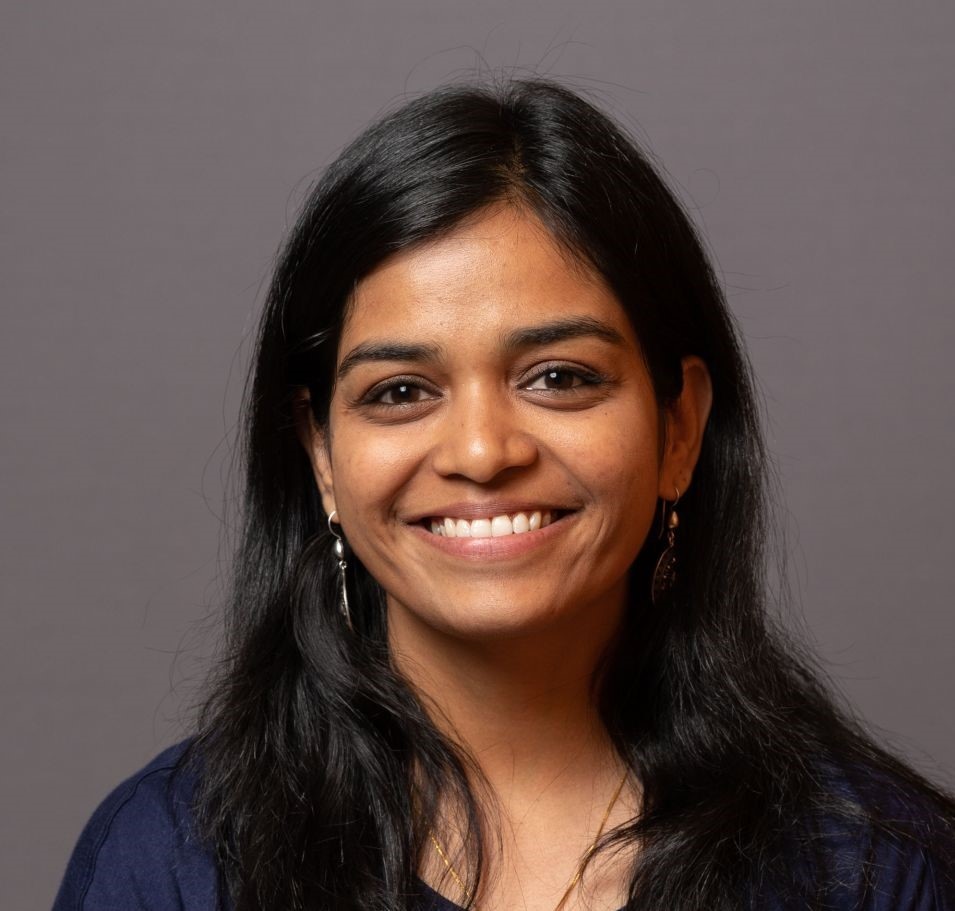 Anusha Avyukt
University of Southern California
Anusha Avyukt
University of Southern California
|
Anusha Avyukt is currently a Postdoctoral Scholar at the University of Southern California, Marshall School of Business, Lloyd Greif Center for Entrepreneurial Studies and prior to this, at the ANRG (Autonomous Networks Research Group) at the Viterbi School of Engineering. She comes with a background in Mathematics as an undergraduate and master’s degree from St. Stephen's College, Delhi (2004, 2006), a Ph.D. (2015) in Economics from IGIDR (Indira Gandhi Institute of Development Research), Mumbai and more recently, a graduate degree in Applied Statistics from Cornell University in 2020. Her research work is at the intersection of Economics, AI, and Autonomous Systems, where she is working on the design and implementation of a credible review and reputation system for data products, on a decentralized data marketplace. She is also working on blockchain applications for businesses, with a focus on issues of privacy, sustainability, and trustworthiness. |
 Tram Vo
MOBI: Mobility Open Blockchain Initiative
Tram Vo
MOBI: Mobility Open Blockchain Initiative
|
Tram Vo is a successful interdisciplinary entrepreneur with cross-industry experience. She is Director/Co-founder of MOBI (Mobility Open Blockchain Initiative); Founder/CEO of Citopia (Web3 marketplace for seamless movement); as well as founder of DREAM (Distributed Registry for Entertainment, Art, and Media). Prior to working in technology, Tram spent most of her career in academia and nonprofit sectors, where she consulted on heritage conservation/preservation projects for many global museums, universities, and NGOs such as UNESCO. She served the J. Paul Getty Trust in Los Angeles for almost two decades; leading highly specialized projects in the Middle East, North Africa, the US, Europe, and Asia. |
 Aljosja Beije
Blocklab
Aljosja Beije
Blocklab
|
Aljosja Beije is a MSc in Quantitative Business Economics from Erasmus University and is currently the Director of Blocklab. Blocklab develops blockchain solutions for supply chain and energy industry. Before Blocklab, he held a number of senior and C-level management positions in IT and SCM, within companies such as Kuehne & Nagel, GE and Nokia. He co-authored, together with Nick Vyas and Bhaskar Krishnamachari of the University of Southern California the book "Blockchain and the Supply Chain: Concepts, Strategies and Practical Applications". He's also a senior researcher at the lectorate of Supply Chain Finance at Windesheim University of Applied Sciences in Zwolle, The Netherlands and visiting lecturer at the Marshall School of Business, University of Southern California, where he co-teaches the course "Emerging Technologies in Supply Chain Management". |
 Hugo Embrechts
Sony R&D Center Europe Brussels
Hugo Embrechts
Sony R&D Center Europe Brussels
|
Hugo Embrechts holds a PhD in computer science and is general manager at Sony's R&D Center Europe Brussels laboratory. He has been leading mostly security related SW development projects for over 20 years. After an initial period of product development the focus gradually shifted to R&D and over the years the lab in Brussels has become Sony’s biggest expertise center in security, both defensive and offensive. Three years ago we decided to venture into building assets and solutions that leverage the disruptive technology of blockchain and that can help Sony enter in a more decentralized era. |
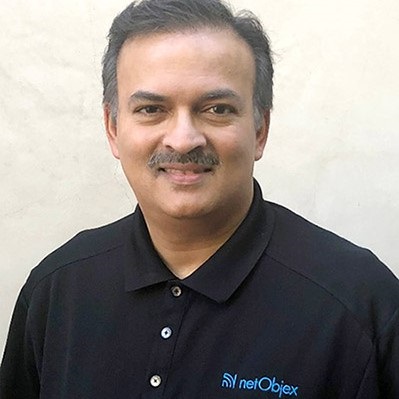 Raghu Bala
NetObjex Inc
Raghu Bala
NetObjex Inc
|
Raghu Bala is CEO, NetObjex Inc based in California USA. He is an experienced technology entrepreneur and is an alumnus of Yahoo, Infospace, PwC, and has had 4 successful startup exits. His interests and experience are focused on Web3/NFT/Defi/Metaverse/IOT/AI. Mr. Bala possesses an MBA in Finance from the Wharton School (University of Pennsylvania), an MS in Computer Science from Rensselaer Polytechnic Institute and a BA/BS in Math and Computer Science from the State University of New York at Buffalo. He is Ex-Columbia University Adjunct Lecturer, currently tutoring MIT courses in AI and Blockchain on the GetSmarter platform. He is a published author of books on technical topics and is a frequent contributor online. He is a contributing author in an upcoming book titled "Handbook on Blockchain" for Springer-Verlag publications. He is also a Contributing Editor to a new book called "Step into the Metaverse". Mr Bala was also instrumental in the development of the Metaverse strategy for NetObjex including its purchase of land and construction of a Metaverse building. He is Board Advisor to several Metaverse and Crypto initiatives - 3DMeet - a Metaverse Education company, Dreamium Labs - a Layer 0 Protocol for the Metaverse, OpenFabric.ai – a decentralized AI platform, and, TrinityDEX - a state of the art DEX built on Algorand. |
Date: Thursday June 23, 2022
Time: 09:00 AM EDT, 06:00 AM PDT, 04:00 PM EEST, 03:00 PM CEST, 06:30 PM IST
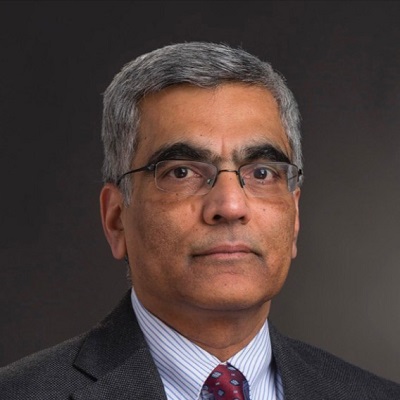 Mohan Kumar, Rochester Institute of Technology, USA
Mohan Kumar, Rochester Institute of Technology, USA
|
Mohan Kumar is a Professor in the Department of Computer Science at RIT since 2013. He served as the chair of the department for 8 years from 2013 to June 2021. During the last 5 years, the computer science department, the largest at RIT, has made significant strides in many areas, including research output, and student graduations, persistence and diversity. Mohan is the Director of the Center for Smart Spaces Research (Planning Phase) – a multi-institution center under the National Science Foundation’s Industry University Collaborative Research Center’s program. Mohan is one of the founding editors of the Elsevier’s Pervasive and Mobile Computing Journal and is one of the area editors of Computer Communications. He is a co-founder of the IEEE International Conference on Pervasive Computing and Communications (PerCom). He is currently serving as the Chair of the Steering Committee for PerCom. IEEE PerCom is established as the premier international conference on pervasive computing and communications, with CORE A* rating. Mohan has played a major leadership role in building an international community comprising researchers, students and industry persons, working in pervasive computing and communications. |
 Franca Delmastro
National Research Council of Italy (CNR)
Franca Delmastro
National Research Council of Italy (CNR)
|
Franca Delmastro is a Senior Researcher of the Institute of Informatics and Telematics (IIT) of the National Research Council of Italy (CNR). She received the PhD degree in Information Engineering from the University of Pisa in 2006. Her research interests cover the areas of mobile and pervasive computing with specific attention to mobile health systems based on physiological and behavioral data derived from wearables and smartphone-embedded sensors, context recognition algorithms, and personalised coaching solutions for health and well-being. In the past years she also worked on context- and social-aware middleware platforms for mobile opportunistic networks, mobile social networks, and mobile recommender systems. She participated in the organization of several international conferences, serving as TPC Vice Chair of IEEE PerCom 2017, Workshops co-Chair of IEEE PerCom 2014, and General Chair of several international workshops. She has been Guest Editor of Special Issues for Elsevier Pervasive and Mobile Computing Journal and Computer Communication Journal. She is an Associate Editor of ACM IMWUT and she is currently co-chair of SMARTCOMP WIP and Demo session. |
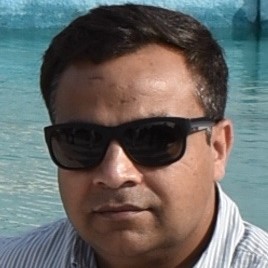 Pushpendra Singh
Indraprashta Institute of Information Technology - Delhi
Pushpendra Singh
Indraprashta Institute of Information Technology - Delhi
|
Pushpendra Singh is a Professor in the Dept. of Computer Science & Engineering at IIIT-Delhi. His research is on the interactions of mobile & middleware systems and human-computer interaction with a focus on technologies for low-resource settings, especially in the context of Public Health. His research for developing a low-cost mobile-based training platform for community health workers has received the prestigious Bill and Melinda Gates Foundation grant. Pushpendra Singh is currently the Project Director of the Technology Innovation Hub at IIIT-Delhi. The hub is established with a grant of 13 million USD from Govt. of India. |
 Nalini Venkatasubramanian
University of California at Irvine
Nalini Venkatasubramanian
University of California at Irvine
|
Nalini Venkatasubramanian is currently a Professor in the School of Information and Computer Science at the University of California Irvine. She has had significant research and industry experience in the areas of distributed systems, adaptive middleware, pervasive and mobile computing, IoT/cyberphysical systems, distributed multimedia and formal methods and has over 300 publications in these areas. As the Co-Director of the Center for Emergency Response Technologies at UC Irvine, Nalini's recent research has focused on enabling resilient and sustainable communities using IoT/CPS technologies. In particular, her research addresses scalable observation and analysis of situational information from multimodal input sources; dynamic adaptation of the underlying systems to enable information flow under massive failures and the dissemination of rich notifications to members of the public at large. Nalini currently leads several projects addressing critical issues She is the recipient of the prestigious NSF Career Award, multiple Undergraduate Teaching Excellence Awards and best paper awards. Prof. Venkatasubramanian has served in numerous program and organizing committees of conferences on middleware, distributed systems and multimedia and on the editorial boards of journals. She received and M.S and Ph.D in Computer Science from the University of Illinois in Urbana-Champaign. Her research is supported both by state and federal governments, NSF, NIST, DARPA, UCOP, DHS, ONR and various industrial sponsors. Prior to arriving at UC Irvine, Nalini was a Research Staff Member at the Hewlett-Packard Laboratories in Palo Alto, California. |
 Linwei Wang
Rochester Institute of Technology
Linwei Wang
Rochester Institute of Technology
|
Linwei Wang is a Professor of Computing and Information Sciences at the Rochester Institute of Technology in Rochester, NY. She obtained her bachelor degree in Optic-Electrical Engineering from Zhejiang University (China) in 2005, her master degree in Electronic and Computer Engineering from Hong Kong University of Science and Technology in 2007, and her PhD in Computing and Information Sciences from RIT prior to joining the faculty of RIT in 2009. Dr. Wang is the Director of the Personalized Healthcare Technology (PHT180) research center at the Rochester Institute of Technology, a Signature Interdisciplinary Research Area composed of over 100 faculty affiliates across nine colleges at RIT. Dr. Wang also directs the Computational Biomedical Lab at RIT, with research interests centered around large-scale statistical inference and Bayesian learning with applications to signal and image analysis in a variety of domains including health, astrophysics, and material design. Her group's research is supported by over 8-million funding from the National Science Foundation and the National Institutes of Health. She is a recipient of the NSF CAREER Award in 2014 and the United States Presidential Early Career Awards for Scientists and Engineers (PECASE) in 2019. |
| Design by Mike Pierce | © Conference Organizers |